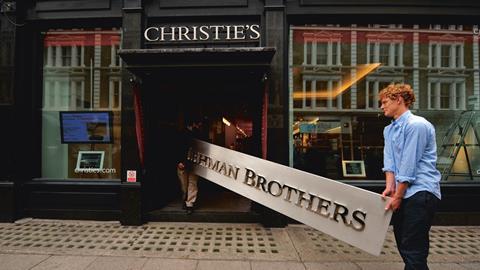Lawyers with enough miles on the clock to have worked through the 2008 financial crisis will know about the shift in balance that takes place inside multi-practice law firms when an economic crisis hits. While the global impact of the current pandemic is still unknown, we can no doubt glean some clues about what will happen next from the previous major economic downturn.
In normal times, the backbone of a multi-disciplinary law firm is the corporate and commercial practice, with its steady stream of retainer income and lucrative transactional work. At the top of the tree, the corporate rainmakers ensure that the partnership enjoys regular, reliable income.
But in 2008, when the global economy lurched south, corporate partners found themselves forced to take a back seat, as their clients struggled to stay in business and the M&A deals dried up. Law firms turned to their disputes teams – with their unpredictable, ‘lumpy’ revenues – to bring home the bacon.
Now forecasters are once again predicting a rise in litigation across the globe. In the short-term, there will be a rush of coronavirus-related disputes, with arguments over the failure to fulfil contract obligations and the limits of the ‘force majeure’ doctrine, as well as the scope of business interruption insurance.
But in the medium-term, if the economy fails to bounce back rapidly, there will be a rise in litigation more broadly. While this is clearly bad for business and for the global economy as a whole, it does at least mean that multi-disciplinary law firms with litigation practices, as well as the litigation boutiques, will see a growing demand for their services – a vital income stream.
Litigation funders are also keen to capitalise on the projected surge in litigation – although there are a few aspects of the new litigation environment that will make them cautious.
Multi-disciplinary law firms with litigation practices, as well as the litigation boutiques, will see a growing demand for their services
Firstly, there will be greater risk of a defendant becoming insolvent. It will therefore be easiest to persuade a funder to offer finance in cases where the damages will ultimately be paid by a state-owned entity, an insurer or a big company that is unlikely to go bust. Claims against the hospitality and travel industries will be less appealing to funders.
Secondly, the harder economic times will make defendants less likely to settle claims, which will make claims more expensive to bring from the funder’s perspective.
So how could funders be helping law firms? In the short-term, the biggest problem facing many law firms will be cashflow. Their operating costs are high, but many client bills are not being paid – and lawyers are reluctant to strain valued, long-term client relationships by pushing for payment of outstanding invoices from businesses that are struggling to stay afloat.
Funders see an opportunity to assist by offering the litigation department a means of receiving monthly income for the work it is doing on cases, in return for a chunk of the ultimate winnings at the end of the successful claims. It is a way of smoothing out the traditional ‘lumps’ in a litigation practice’s revenue.
In the longer term, funders are expecting a general uptick in demand for their finance, as businesses facing very tight liquidity are much more likely to turn to third-party funders to bring claims, rather than risking their own cash. Struggling companies are also keener to pursue claims for matters that could be monetised to provide income, such as patent infringements, provided they can do so without financial risk – even if that means sacrificing a sizeable chunk of the damages.
But it is not just the litigation funders that may seek to take advantage of what could prove to be a huge demand for the financing of claims. There are signs that some innovative law firms are making further strides into this arena. Listed City firm Rosenblatt has recently set up a new funder, ‘LionFish’ – led by high-profile funding figure Tets Ishikawa – to provide funding across a range of sectors.

Meanwhile, City firm Fieldfisher, which already offers damages-based agreements, has crafted a novel arrangement with an unnamed after-the-event insurer that enables a proportion of its unbilled work in progress and disbursements to be guaranteed at the end of the case, without needing to involve a funder. Unveiling the new arrangement, Fieldfisher disputes partner Tony Lewis threw down the gauntlet to the funding industry, asking: ‘Why should clients share a hefty proportion of their winnings with funders when they can work directly with us?’
As clients increasingly turn to their lawyers for advice on how to finance growing levels of litigation, it seems inevitable that more law firms will start asking the same question.
Rachel Rothwell is editor of Gazette sister magazine Litigation Funding, the essential guide to finance and costs (www.lawgazette.co.uk/litigation-funding). For subscription details, tel: 020 8049 3890
































No comments yet